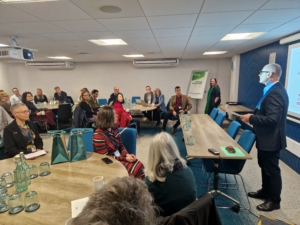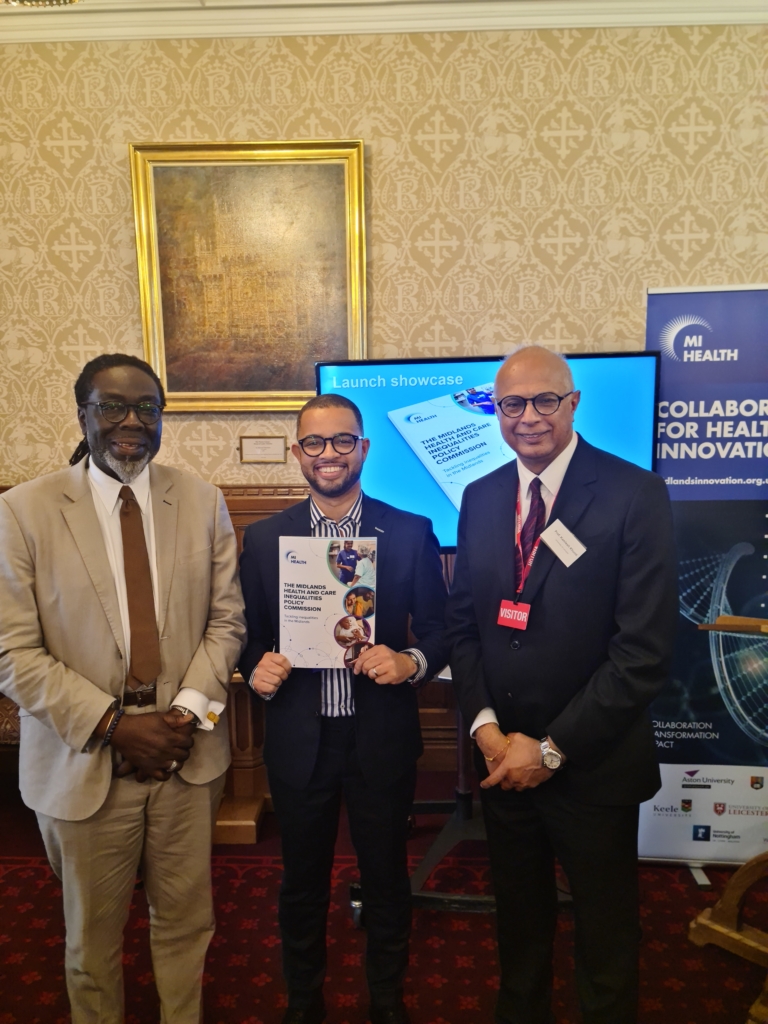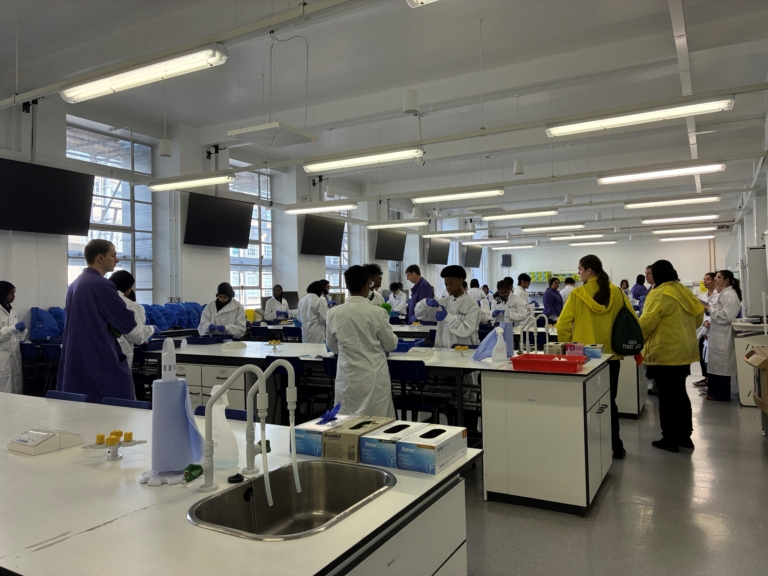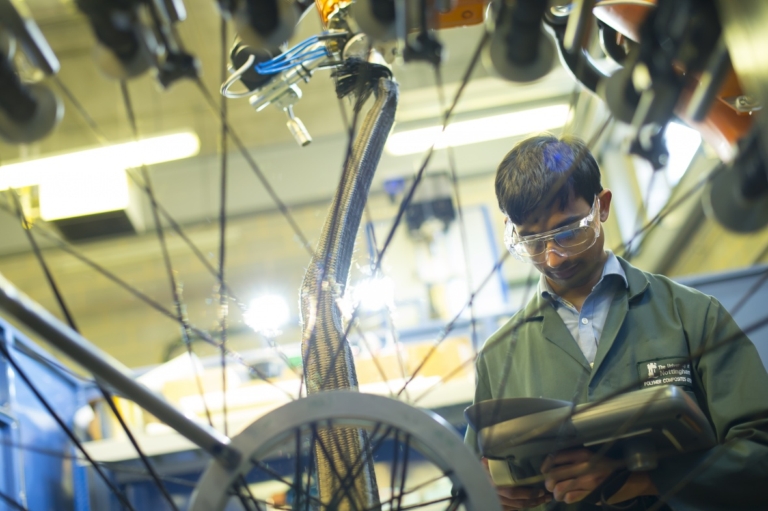Rebecca Riley, Peter O’Brien and Helen Turner reflect on the Innovation for Growth summit – UKRI.
Liz Kendall, Secretary of State for Science, Innovation and Technology (DSIT) opened the summit with an analogy that, in 1996, Team GB finished 36th in the Olympic medal table a sobering result for a nation with sporting history, tradition and ambition. By London 2012, Britain was a global powerhouse, winning medals across multiple disciplines. What explains this turnaround? It wasn’t just more funding. It was a deliberate strategy: focus on fewer things, do them better, and build a system where many places worked together toward one goal. An apt provocation for the future of R&D investment in the UK.
This analogy is powerful for UK Research and Innovation (UKRI). As the UK seeks to lead in industrial strategy sectors AI, clean energy, advanced manufacturing, life sciences, the challenge is similar. We need gold-standard R&D everywhere but delivered through a coherent national system that leverages local and regional strengths, fosters collaboration, and inspires global competitiveness.
Lessons from Team GB
Team GB’s transformation after Sydney 2000 was built on:
- Targeted investment in world-class facilities and coaching, that can clearly demonstrate likely medal success (or the ‘gap to the podium’ can be narrowed).
- That have a track record of international success in which there is an appropriate level of governing body support for high-performance programmes.
- Distributed training hubs, each contributing unique expertise.
- A unified national vision, ensuring complementarity rather than competition.
- Target investment considered to represent value for money.
The result? A system where excellence was nurtured across many places, creating a culture of success. The lesson for UKRI is clear: fragmentation fails, integration wins.
UKRI’s Challenge: Excellence Everywhere
The government has confirmed that UKRI will invest heavily in research and innovation based around the following priorities:
(1) protecting curiosity-driven, foundational science
(2) supporting strategic government and societal priorities
(3) targeting innovative, UK-based company scale-up and growth
With a 4th area highlighted on cross cutting activities, they will move some funding across financial years, reallocate funding where a programme underspends and deprioritise where the investment isn’t delivering against outcomes, whilst doubling down where it does. DSIT’s overall R&D budget will grow in real terms over the Spending Review (SR) period, totalling £58.5 billion from 2026/2027 to 2029/2030 and driving economic growth, supporting the Industrial Strategy sectors, and delivering on the AI Opportunities Action Plan.
This ambition reflects the urgency of the “race the UK needs to win.” But money alone won’t deliver gold medals. We need a system that:
- Aligns curiosity-driven research with mission-driven priorities, investigator-led research remains the foundation of world-leading science, but applied research must translate discoveries into societal impact.
- Focuses on fewer things, done better strategic prioritisation to avoid spreading resources too thin.
- Connects places into a national network because innovation thrives in ecosystems, not silos.
Multi-Strength Hubs: A Networked Approach
The UK’s regions are not one-dimensional. A city or region known for advanced manufacturing may also lead in battery technology and AI applications; a life sciences cluster might have strengths in data analytics and health tech. This diversity is a strategic advantage.
Rather than rigid silos, UKRI should foster multi-strength hubs that collaborate across sectors and geographies. The Local Innovation Partnership Fund starts this process or developing hubs. These hubs act as nodes in a national network, sharing infrastructure, talent, and knowledge. By connecting overlapping strengths, digital with health, energy with AI we create cross-sector synergies that make the UK more resilient and competitive globally.
In a small island nation, success depends on integration, not isolation: many places, many strengths, one coherent system.
Flexibility for Resilience and Global Competition
The UK is a small island competing against nations with vast resources. To stay ahead, we cannot afford rigid structures. Resilience comes from flexibility and allowing places to evolve and nurture their strengths as technologies converge and markets shift. A region leading in automotive today might pivot to hydrogen tomorrow; a digital cluster could expand into health tech. Structures should not constrain this innovation and the need for responsiveness to the private sector evolution.
This adaptability ensures the UK’s innovation ecosystem remains dynamic and future-proof. But flexibility only works when underpinned by collaboration: many places, connected through shared infrastructure and knowledge networks, working as one coherent system.
From Competition to Collaboration: Adapting UKRI Funding
Too often, regions and institutions compete for limited funding, creating duplication and fragmentation. In a global innovation race, this is a luxury the UK cannot afford. UKRI funding models must evolve to incentivise collaboration over duplication and rivalry by:
- Prioritising bids that demonstrate intra-regional and cross-regional partnerships and shared infrastructure.
- Supporting integrated projects spanning multiple clusters and sectors.
- Rewarding collective impact, not isolated wins.
Just as Team GB’s success came from coordinated investment and shared expertise, UKRI must champion a system where excellence is collective, not competitive.
Connecting Innovation to People
Less than a third of the public can identify how R&D benefits them, and only 18% see its local impact. A place-based approach can change this by making innovation visible and relevant through local projects, skills programs, and engagement that show how research improves health, jobs, and quality of life. Public trust and support are essential for sustaining investment and inspiring future generations.
Anchoring Global Competitiveness
The UK has produced world-class innovations, DeepMind was highlighted in the panel discussion and is a prime example, but too often, scale-ups move abroad. To anchor success here, we need:
- Meaningful UK scale-up capital, including unlocking pension funds.
- Talent pipelines that attract global entrepreneurs.
- Procurement strategies that give UK innovators contracts and markets.
- Porosity between academia and industry, enabling researchers to commercialise ideas without friction.
These steps will help the UK build not just start-ups, but global champions.
Conclusion: Hope, Focus, and Collaboration
Team GB’s rise wasn’t about one superstar, it was about a system that nurtured excellence everywhere, and it was built on infrastructure, talent and planning. The same logic applies to UK innovation. By adopting a place-based approach, focusing on fewer things done better, and leaning into collaboration within and across places, UKRI can turn regional strengths into national advantage.
The UK has the talent, ideas, and ambition. The challenge is building the infrastructure, incentives, and culture that allow every place to contribute to a stronger, more competitive Team UK. If we get this right, we won’t just win medals in innovation we’ll inspire generations and secure our place on the global podium.
This blog was originally published by City-REDI, University of Birmingham on the 26th November 2025.






